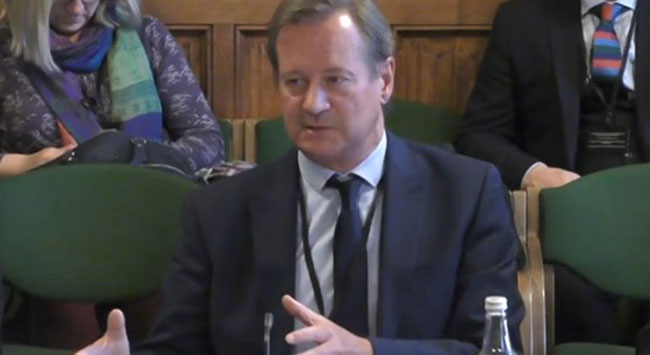Monday, October 31, 2022
|
Listen to this news
|

Confor Chief Executive, Stuart Goodall gave testimony to the Environmental Audit Committee (EAC) that the UK would be requiring 78% more timber by 2050 if demand continues to rise at current rates. This change is largely fuelled by the constant need of the construction industry to utilise more wood in buildings, to assist in decarbonizing the UK’s construction industry and to contribute to meeting net zero goals.
UK needs to plant far more productive forests
Mr. Goodall was addressing the EAC as part of its investigation into deforestation and sustainable timber. The investigation is significant to Confor because it focuses on concerns that the sector has constantly brought up, such as the lack of domestic timber output in the face of growing global demand, which would undoubtedly put pressure on vulnerable forests abroad. A new report ahead of climate summit COP27 showed that “the gap between timber demand and supply is going to grow significantly at a global level.”
“This is a very significant inquiry which is taking a serious look at future wood supply. It’s crucial to explain to policy-makers that the UK needs to plant far more productive forests, particularly in England, to deliver a very wide range of environmental and economic benefits.” Mr. Goodall continued : “This rapidly rising demand for timber does raise a concern for us [about] pressure on fragile forests. It’s going to encourage illegal logging, it’s going to have negative habitat implications. And we do want to use more wood because [otherwise] we’re not going to achieve net zero. So we have this conundrum, which is why this inquiry is extremely important.”
The majority of trees planted in England during the past three decades have been broadleaf species, according to Ian Tubby of the Forestry Commission, even though it is very challenging to grow hardwoods like oak to construction standards in the UK due to squirrel damage. Mr. Tubby emphasised the “very important role” that commercial forestry plays in helping the UK Government achieve its goal of annually establishing 30,000 hectares of new woodland, and Mr. Goodall focused on the potential benefits of productive planting for the environment, biodiversity, and local economies.
“These benefits will support the UK’s rural economies, its climate change ambitions and the future of its natural world. Not only that, there will be very significant long-term global benefits in terms of protecting fragile forests. Read more news on Confor
Tags: Confor chief executive, Environmental Audit Committee, Stuart Goodall, timber, UK, wood, woodworking, woodworking and manufacturing, woodworking event, woodworking industry, woodworking UK
Comments: